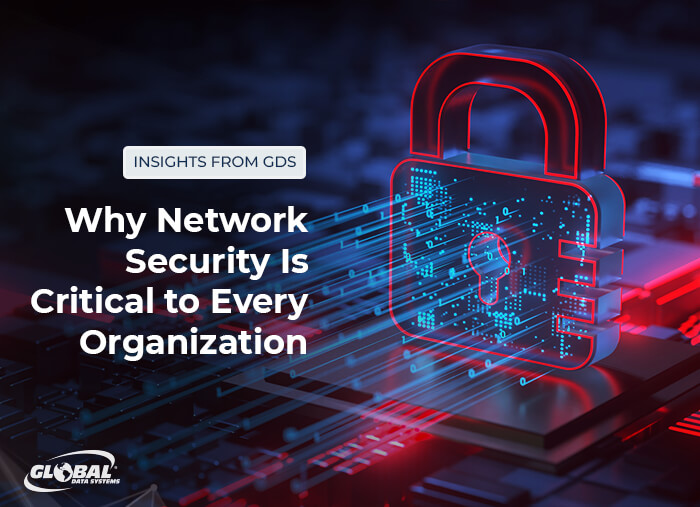Why Network Security Is Critical to Every Organization
There’s one sure way to protect computer systems from cyberattacks — disconnect them from the network. Of course, that’s not feasible. Network connectivity is essential to business communications and operational processes.

In light of that, organizations must take steps to keep the network safe. Network security encompasses all the tools, techniques and processes used to prevent attackers from accessing the network, spreading malware and exfiltrating data. It is a critical element of any organization’s security strategy, and should be carefully designed, implemented and maintained.
Without adequate network security, organizations face a significant risk that sensitive information will be stolen or compromised. Personally identifiable information (PII) and intellectual property are valuable to hackers and frequent targets of attacks. Organizations can suffer significant financial losses if this data is stolen, and potentially the cost of legal fees, lost reputation and customer churn. They may also face fines and other consequences if they’ve failed to meet regulatory compliance requirements.
Network attacks also cause significant business disruption. Operations often grind to a halt, and It can take days or even weeks to fully recover.
Commonly Used Network Security Tools
Today’s networks are complex, connecting multiple systems, peripherals, wireless devices, remote locations and more. Each of these is a potential point of attack. As a result, network security should incorporate a range of hardware and software tools to provide adequate protection. Tools will need to be updated and added as the network evolves and new attack methods emerge.
Some of the most commonly used tools include:
- Firewalls that inspect traffic entering and leaving the network to identify threats.
- Intrusion prevention systems that detect and block unauthorized access attempts.
- Antimalware solutions that detect and prevent the spread of viruses and other threats.
- Access control systems that allow only authorized users and devices to connect to the network.
- Wireless security, which encompasses monitoring, auditing, segmentation and more.
- Email security to protect users from spam, phishing and malware attacks, and prevent the exposure of sensitive data.
- SD-WAN security to protect data traversing the Internet between locations and remote users.
Organizations must take steps to keep the network safe.
Developing a Security Strategy
Most organizations will need all these tools, and some will need others as well. A network security assessment will identify potential vulnerabilities and gaps in the organization’s security posture. A security professional uses this information to develop an overarching strategy for protecting the network and complying with regulatory requirements. In addition to security tools, the strategy should include policies that users must follow and procedures for maintaining the security posture.
The importance of well-designed security policies cannot be overstated. Users are always the weakest link in the security chain. Everyone must follow best practices to keep the network safe. Organizations should ensure that users understand the security policies and the consequences of not following them. This includes any contractors, vendors, suppliers and other third parties.
The security strategy must be flexible enough to adapt to changes in the IT environment. New vulnerabilities may open up when new technologies are added, requiring different tools and techniques.
Benefits of Strong Network Security
The security strategy should also consider ongoing monitoring and maintenance. If the in-house IT team lacks the resources to manage network security, outsourcing to a managed services provider may make sense. Additionally, security should be strong but not overly complex or burdensome for users. Users are likely to find workarounds if security impedes business processes.
Well-designed network security is worth the effort. It helps ensure the security, privacy, integrity and availability of data, and compliance with security standards and regulatory requirements. It also helps maximize the availability and performance of the network itself, ensuring that users have access to the resources they need.
GDS has a team of experts with years of experience in the design, implementation and ongoing management of network security environments. Contact us to schedule a confidential consultation.
Benefits of Managed IT Services from Global Data Systems
- Strategic Managed IT: We help you solve your technology related business problems.
- Connectivity: We get you reliable, secure connectivity anywhere in the western hemisphere in 48 hours.
- Support: When you need help simply call our 24x7x365 support number.
- Billing: Instead of managing hundreds of vendors - get one, easy to read bill from GDS.
Contact Managed Services Provider, Global Data Systems >
